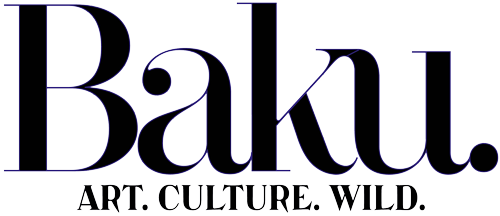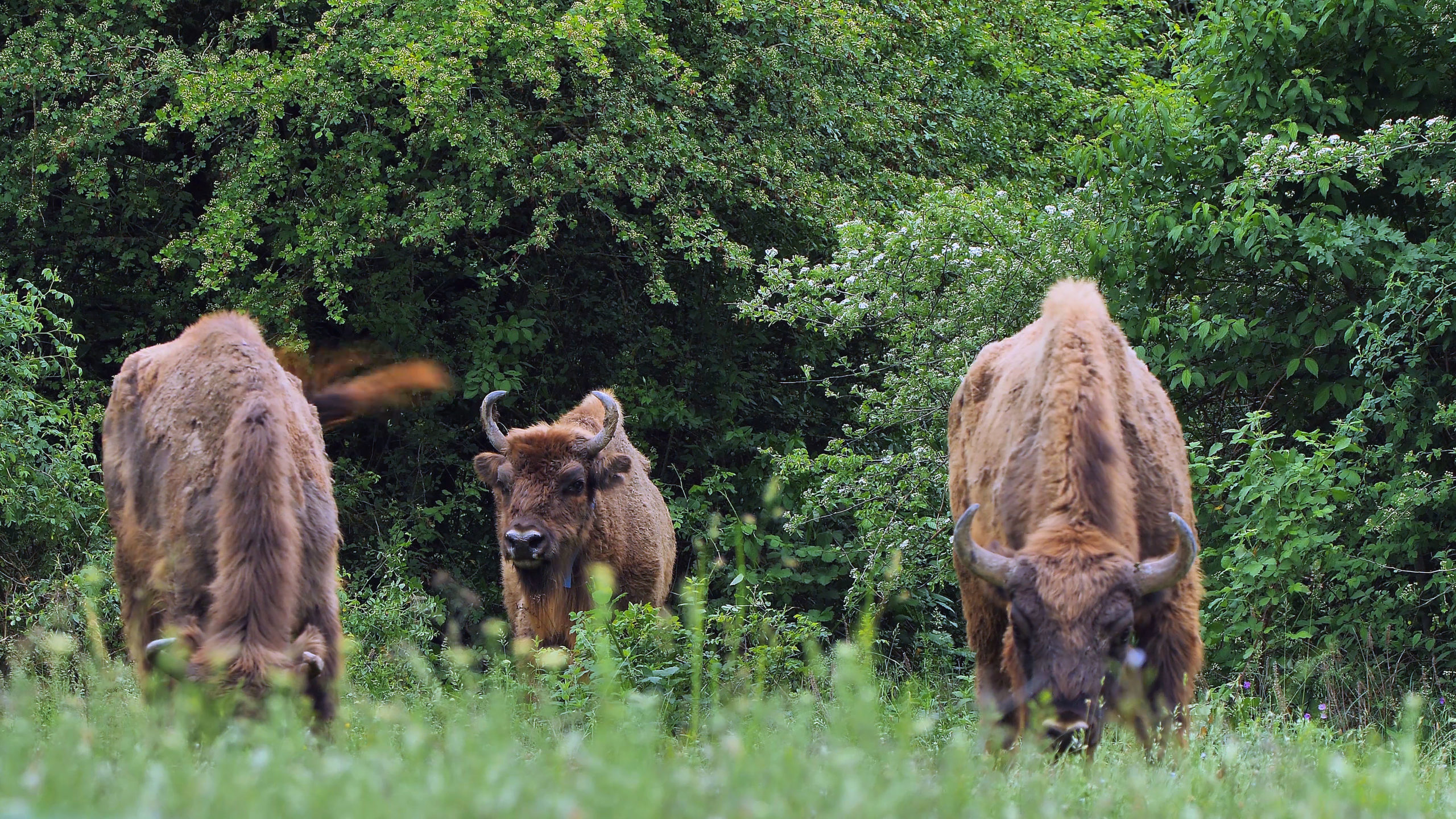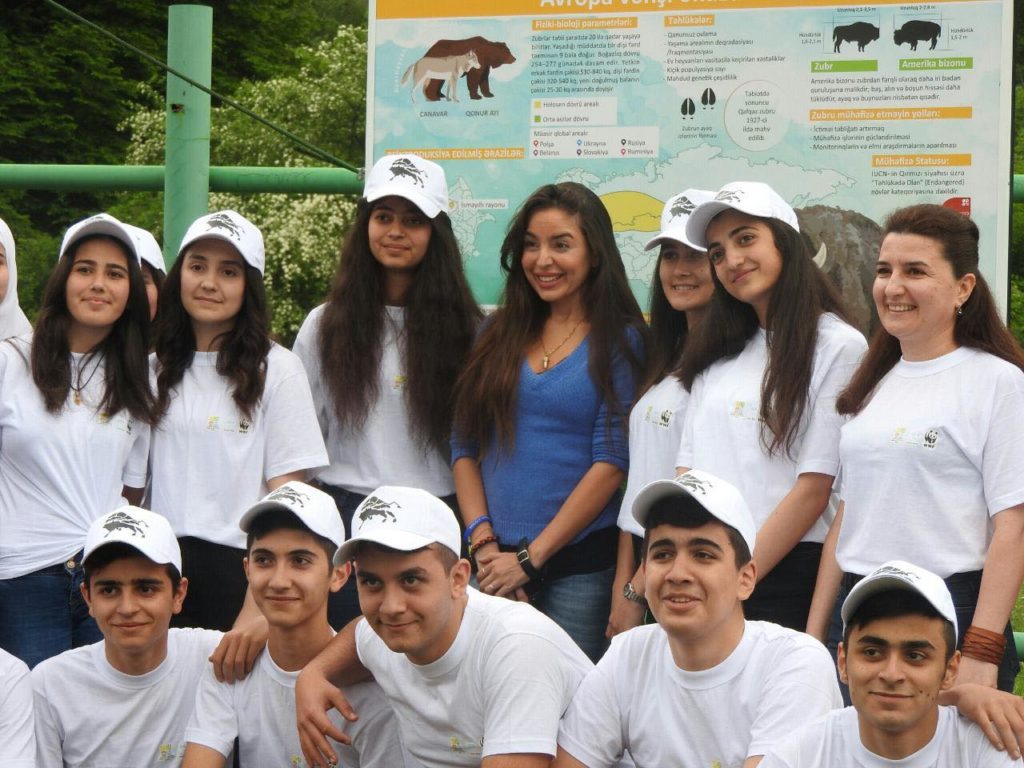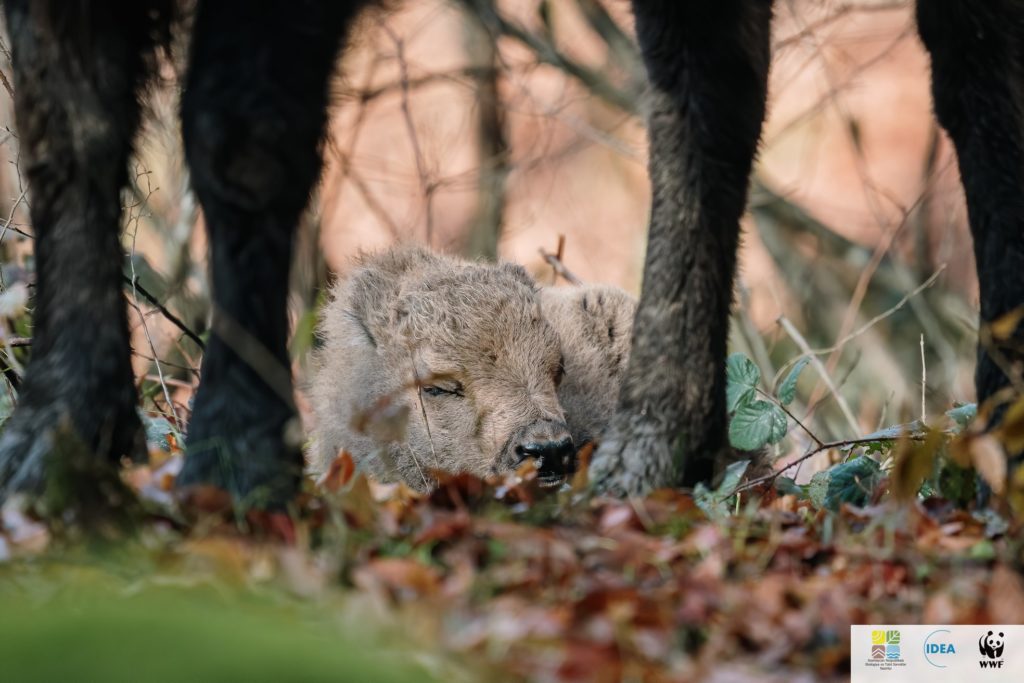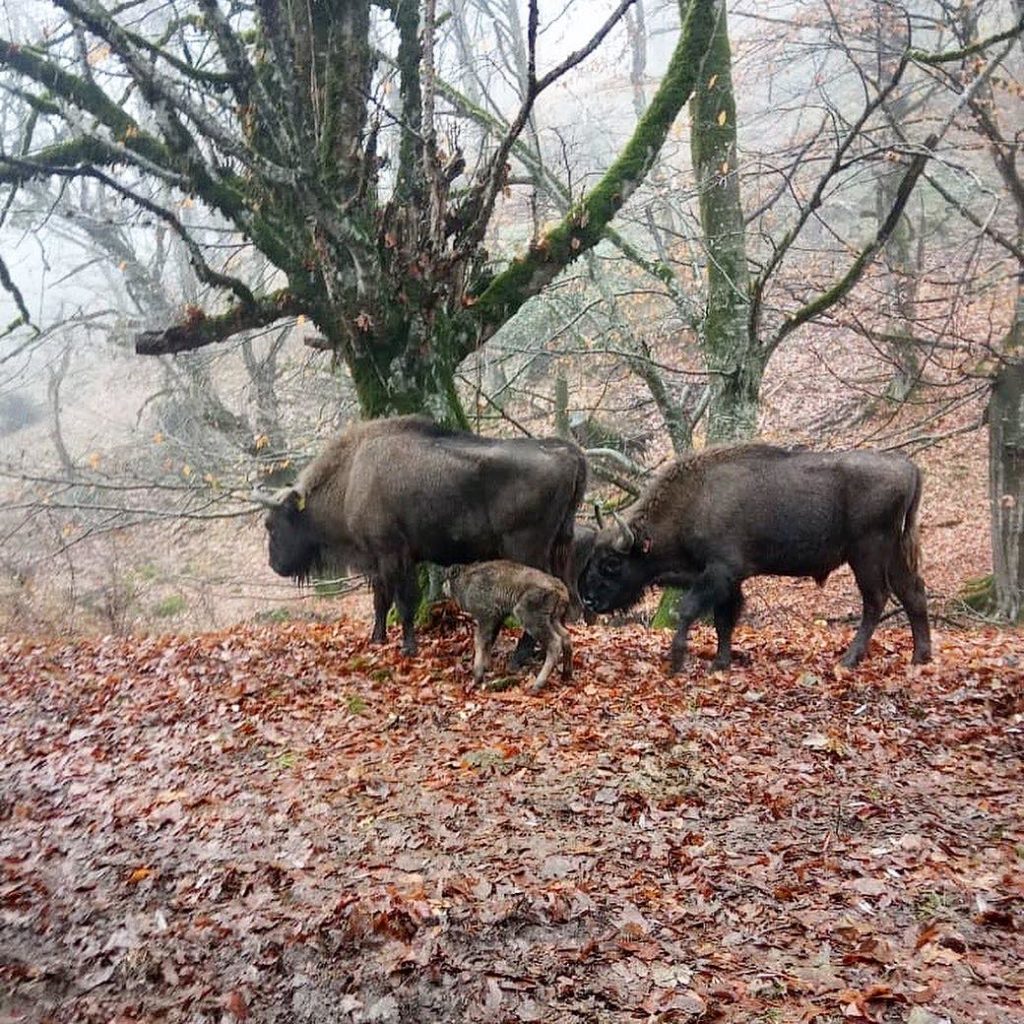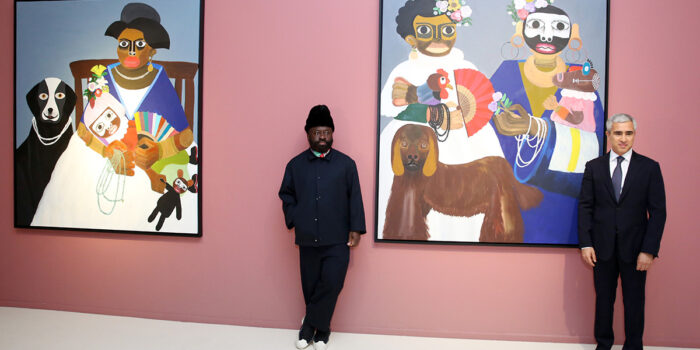How one organisation is transforming the Caspian Sea coastline into a haven for biodiversity.
Leyla Aliyeva set up IDEA in 2011 with one goal in mind: to push environmental issues to the top of the youth agenda. Ten years after its founding, IDEA is transforming the Caspian Sea coastal area of Azerbaijan into a conservation zone to be reckoned with.
The International Dialogue for Environmental Action (IDEA) may have just reached its ten-year milestone, but it has more than birthdays to celebrate. Having recently set up two successful initiatives near the Caspian Sea – the Abundant Basins fish conservation and Bison Reintroduction projects – IDEA is fast establishing the South Caucasus region as a global sustainability powerhouse. The good news? We can all reap the rewards, through a rapidly growing tourism infrastructure.
IDEA kick-started its Abundant Basins project following the recognition of the Ghizilagaj National Park as a Mission Blue Hope Spot in 2019. Having successfully overseen the replenishment of the country’s sturgeon populations through sustainable fishing and water clean-up activities, the Baku-based organisation is actively working to save the species from critical endangerment, paving the way for ecological and economic opportunities alike.
Baku Caviar is one company turning IDEA’s fish conservation to its advantage. Claiming to be the world’s first sustainable caviar brand, it sources its produce through responsible farms from the Caspian region. Addressing a decades-old concern over the treatment of beluga sturgeon, Baku Caviar presents a guilt-free, luxury alternative for visitors – testifying how conservation need not altogether preclude indulgence.
On dry land, too, IDEA continues to make waves. Partnering with WWF and the Ministry of Ecology and Natural Resources of Azerbaijan, IDEA has helped to reverse the ‘endangered’ status of European bison through their reintroduction of the species back into the Ismayilli region. Long considered to be a symbol of wilderness and power, the European bison had been declared extinct in the wild over a century ago. Yet the news of the arrival of another bison calf on the 6th September (the fifth since the Reintroduction Project began) attests to the power of conservation to turn the tides of environmental change.
If the future of the European bison still hangs in the balance, calf number five indicates that the symbolic strength of the bison may well become an ecological reality. Coinciding with the establishment of the Azerbaijan Ecotourism Association in 2020, IDEA’s work is not only set to transform local biodiversity but also the ecotourism prospects of the surrounding area. Ecolodges have since begun to proliferate in Ismailli. The scenery of the nearby Shahdag National Park is breathtaking all year-round: as well as being one of the country’s established downhill skiing areas, it is now developing into an outdoor sports wilderness, home to some of the 16 new mountain hiking routes being developed in Azerbaijan this year.
With COP26 (the United Nations Climate Change Conference) set to take place in November, the 2021 sustainability calendar continues to heat up. So too, the efforts of IDEA show no sign of slowing down. From restoring the formerly occupied Arazboyu Nature Sanctuary and Basitchay Reserve areas to protecting coastline and marine reserves in the Gizilaghaj region, the organisation certainly has had its work cut out. Yet as a genuine investment in all our ecosystems, IDEA is proving that conservation can work hand in hand with development and sustainable tourism.
Words by: Ella Johnson
Instagram: idea_campaign
Website: http://ideacampaign.org
Online editor: Candice Tucker
